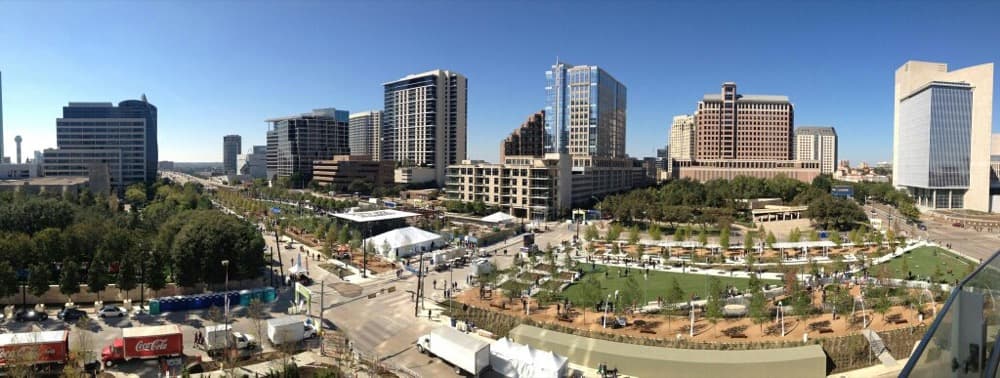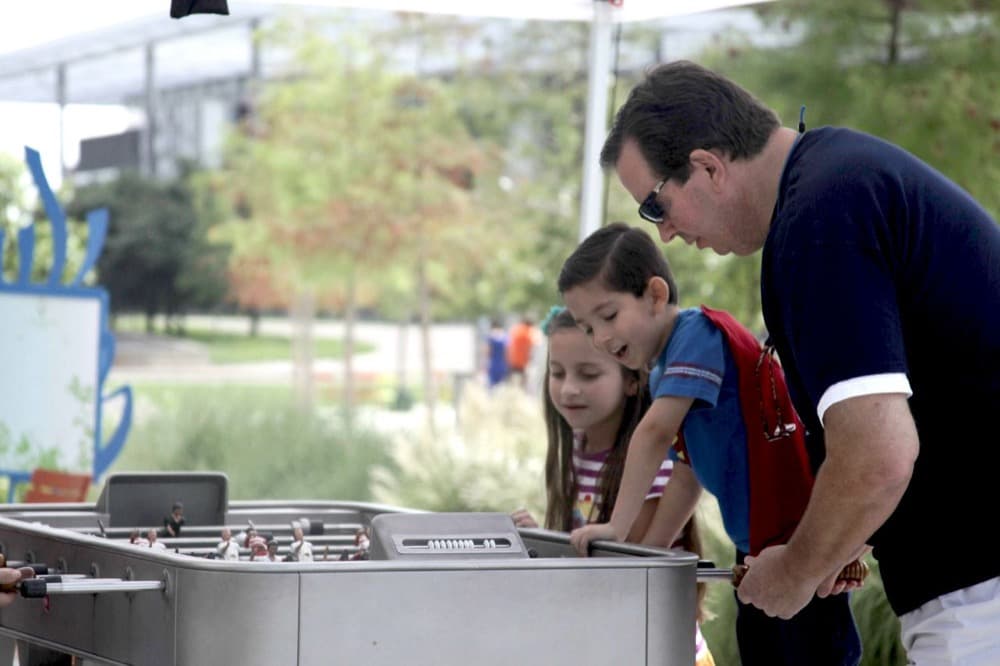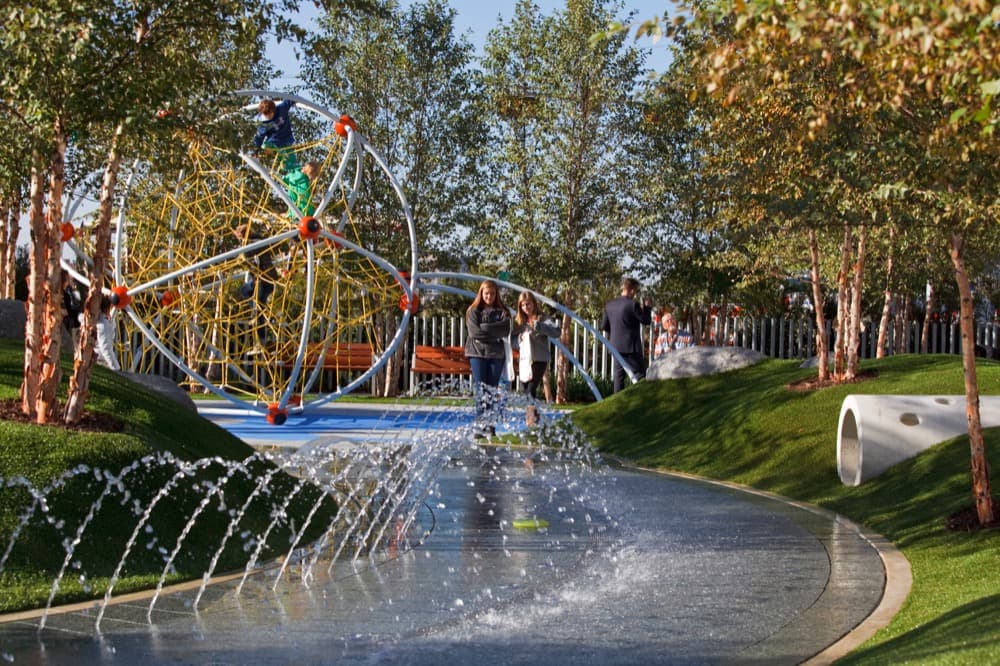
"Klyde Warren Park" is a kind of talisman, a phrase used to ward off skeptics of the plan to build a park over one section of an expanded, sunken I-70.
The Denver project is going to be great, in other words — just look at Klyde Warren Park.
A 5.2-acre park built over the Woodall Rodgers Freeway in Dallas, Klyde Warren Park has yoga and foosball, putting greens and outdoor concerts, dog parks and walking trails, food trucks and more food trucks.
The park cost $110 million, and almost half the money came from the private sector, including $10 million for naming rights.
(The park isn't named for a Dallas historical figure – it's named for the son of energy executive Kelcy Warren, who pitched in that $10 million.)
All the stuff to do in the park, most of it free, is made possible by the Woodall Rodgers Park Foundation. The foundation's $3 million annual budget comes from a special assessment on nearby property owners, sponsorships, contributions, space rentals and alcohol and food sales.
Denver city officials want to create a similar public-private partnership to provide programming in the cap park over I-70, though exactly what that looks like is still up in the air.
Klyde Warren Park had skeptics too.
"There was an element of the community that thought we were crazy," said Jody Grant, chairman of the Woodall Rodgers Park Foundation. "They said it was the dumbest idea they ever heard."

Klyde Warren Park has also been the catalyst for a real estate boom since it opened in 2012. Last year, D Magazine described rapidly rising office rents and millions of dollars of new investment in residential and hotel projects in nearby neighborhoods.
“I don’t know that any of us, early on, were thinking about property values and what would happen when the free market took over,” John Crawford, CEO of Downtown Dallas Inc., told the magazine. “The park has far exceeded expectations in terms of its impact on the entire downtown area.”
Could a cap park connecting the northern and southern sections of Swansea have a similar effect?
It's hard to imagine a park that would be less appealing than the viaduct that runs through the neighborhood now, but even if it's an improvement, there are plenty of differences between Dallas and Denver.
Klyde Warren Park connects a downtown office district that had suffered the wear and tear of boom-and-bust cycles with an arts district that includes museums, performing arts centers and sculpture gardens.
The I-70 cap park will connect two halves of a neighborhood that has some of the last remaining affordable housing in the city mixed in with heavy industrial uses, including many, many marijuana grow operations.
Klyde Warren Park is filled with activity from dawn to dusk.
Parents from Swansea Elementary School, which sits at the northern edge of the proposed park, have asked that the fields closest to the school be closed to the public during the school day, though the rest of the park will be open.
A 2016 report on gentrification from Denver's Office of Economic Development identifies the Elyria-Swansea neighborhood as "susceptible" to gentrification.
Grant said Klyde Warren Park's success is a combination of its location and careful attention to park management and programming.
"You can't just put in a deck park and assume it will work," Grant said.

"It was really in prime real estate, but having it there has made everything better," said Karl Stundins, area redevelopment program manager with Dallas' Office of Economic Development. "There is more office. There is more residential.
"What makes it special is the connection to the arts," he said. "It's the new main street for downtown."
Parks over highways aren't new.
Seattle's Freeway Park over I-5 was built in 1975 – but cap or deck parks are in fashion right now as cities try to undo some of the damage done when the interstate system met urban renewal in the 1960s.
"Freeway cap parks (or highway cap parks, or turnpike cap parks, depending on your preferred regional dialect and/or toll system) are the hot new way for cities to dial down the noise, pollution and blight that come with those pesky interstates."
About that air pollution: Globeville, Elyria and Swansea already have high rates of asthma and other health problems associated with air pollution, and some residents fear a wider highway carrying more traffic would just make things worse.
City and state officials say the pollution will be lowest within the park.
To comply with EPA standards, Klyde Warren Park's design includes a ventilation system and emergency fans that click on when necessary.
"You have to deal with that, and that is expensive," Grant said.
Update: This story has been changed to clarify that only a portion of the cap park over I-70 would be closed during the school day.











